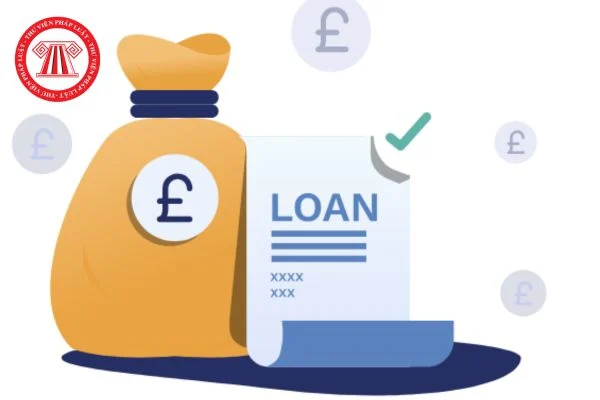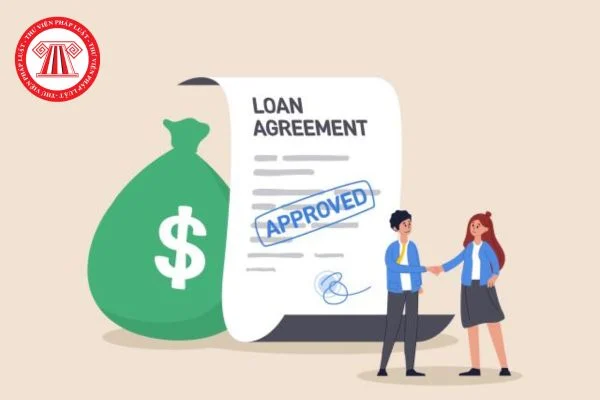Securing a loan against a mobile home is often perceived as a daunting task, but it can be a viable solution for many homeowners. A mobile home equity loan offers a way to leverage the value of your mobile home, especially for debt consolidation or unexpected expenses. This guide will clarify the essential requirements and processes involved in obtaining a mobile home equity loan, helping you understand how to navigate this financial option effectively.
Toc
- 1. Understanding Mobile Home Equity Loans for Park Residents
- 2. Eligibility Requirements for a Mobile Home Equity Loan
- 3. Related articles 01:
- 4. Types of Mobile Home Equity Loans
- 5. Finding the Best Mobile Home Equity Loan
- 6. Related articles 02:
- 7. Navigating the Application Process
- 8. Mobile Home Equity Loans in Florida: Specific Considerations
- 9. Conclusion
Understanding Mobile Home Equity Loans for Park Residents
Mobile home equity loans provide homeowners with the opportunity to borrow against the equity they have built in their mobile homes. Equity is defined as the difference between the current market value of the mobile home and any outstanding debts secured against it. Understanding mobile home equity loans is particularly crucial for those residing in parks, as the requirements and processes can differ significantly from traditional home equity loans.
What is a Mobile Home Equity Loan?

A mobile home equity loan allows homeowners to use their equity to secure financing. This type of loan can be beneficial for individuals looking to consolidate high-interest debts, fund home improvements, or cover unexpected expenses. To qualify for a mobile home equity loan, the mobile home must be permanently affixed to the land it occupies and meet specific lender criteria.
Differences Between Mobile Home Equity Loans and Traditional Home Equity Loans
Unlike traditional home equity loans, which are often more straightforward due to the established nature of single-family homes, mobile home equity loans require additional considerations. For instance, mobile homes in parks often have unique regulations that can affect loan eligibility and terms. A common question is: can you get a home equity loan on a double-wide? The answer is yes, provided the double-wide is permanently affixed to a foundation and classified as real property.
Unique Considerations for Mobile Homes in Parks
Homeowners in mobile home parks face particular challenges when applying for a mobile home equity loan. These may include restrictions imposed by park management, the need for park approval, and the lack of land ownership, which can impact the valuation of the home. Understanding these nuances is vital for park residents seeking financing options.
Eligibility Requirements for a Mobile Home Equity Loan
When considering a mobile home equity loan, it is crucial to understand the requirements that lenders evaluate. The following key factors play a significant role in determining eligibility.
Credit Score
Your credit score is one of the most critical factors in the approval process for a mobile home equity loan. Generally, a higher credit score translates to better loan terms and lower interest rates. A FICO score above 700 typically qualifies for the most favorable interest rates, while scores below 620 may face significantly higher rates or even loan denials. For example, a borrower with a 680 score might secure a rate of 7%, whereas a borrower with a 600 score could see rates exceeding 12%, depending on other factors. If you have bad credit, options are available, as some lenders provide products specifically designed for borrowers with lower credit scores, although these may come with higher interest rates or larger down payments. Resources for improving credit scores include timely bill payments, reducing outstanding debts, and regularly monitoring credit reports.
Debt-to-Income Ratio (DTI)
The debt-to-income ratio (DTI) is another crucial aspect that lenders consider when approving a mobile home equity loan. This ratio measures your monthly debt payments against your gross monthly income. A lower DTI indicates that you have a manageable level of debt compared to your income, which can positively influence your loan application. Generally, a DTI below 43% is preferred by many lenders.
Appraisal Process
Before approving a loan, lenders typically require an appraisal to determine the current market value of your mobile home. This assessment considers various factors, including the home’s condition, location, and local market trends. The appraisal directly impacts the amount you can borrow, as lenders usually allow you to take out a loan based on a percentage of your home’s value—commonly around 80%.
However, appraising mobile homes, especially those in parks, can present challenges. Independent appraisers may be more objective, but lender-affiliated appraisers might show bias toward favorable valuations to ensure the loan’s security. This potential conflict can affect the perceived value of your home, making it essential to understand the appraisal process fully and choose an appraiser wisely.
Documentation Requirements
Applying for a mobile home equity loan necessitates several documents to verify your financial situation. Common requirements include proof of income, bank statements, property tax records, and documentation regarding your current mortgage. For homeowners residing in parks, additional documentation may be needed, such as proof of park residency and park approval.
Specific Requirements for Mobile Homes in Parks
Park residents must be aware of specific requirements that may affect their eligibility for a mobile home equity loan. These can include proof of park residency, compliance with park regulations, and, in some cases, approval from park management before obtaining financing.
Mobile Home Equity Loan Bad Credit Scenarios
For those with bad credit, navigating the mobile home equity loan landscape can be daunting. However, some lenders specialize in offering loans to individuals with lower credit scores. It’s crucial to research and understand the potential risks, such as higher interest rates and the requirement for larger down payments, to make an informed decision.
2. https://nhagobinhthuoc.com/mmoga-secure-your-future-a-guide-to-fixed-rate-student-loans/
3. https://nhagobinhthuoc.com/mmoga-rocket-loans-personal-loan-a-borrowers-guide/
4. https://nhagobinhthuoc.com/mmoga-mortgage-consolidation-loan-simplify-your-debt/
Types of Mobile Home Equity Loans
There are various types of mobile home equity loans available, each with its advantages and disadvantages. Understanding these options can help you choose the best mobile home equity loan for your financial needs.
Cash-Out Refinance
A cash-out refinance is an attractive option for homeowners looking to consolidate debt. This process replaces your existing mortgage with a new one, often at a lower interest rate, while allowing you to access additional cash based on your equity. The primary benefits include lower monthly payments and the ability to pay off high-interest loans with a single, lower-interest loan.
However, while cash-out refinancing can consolidate debt, it can also increase overall debt if not managed carefully, potentially leading to financial hardship. If you borrow more than necessary, you might find yourself in a deeper financial hole than before, making careful consideration crucial.
Home Equity Loan
A home equity loan provides a lump-sum payment, typically at a fixed interest rate. This type of loan is suitable for those who prefer predictable monthly payments. However, while fixed interest rates offer predictability, they might not be the most competitive option compared to variable rates if interest rates are declining. Careful consideration of the pros and cons is necessary to determine if this option aligns with your financial goals.
Home Equity Line of Credit (HELOC)
A HELOC functions similarly to a credit card, allowing homeowners to access funds as needed based on their home equity. This option can be advantageous for those seeking flexibility in borrowing and repayment. However, HELOCs often come with variable interest rates, which can lead to higher payments over time if rates rise. Additionally, careful management is crucial to avoid accumulating more debt than intended.
Tax Implications of Different Loan Types
It’s important to consider the potential tax implications of different loan types. For instance, interest on home equity loans and HELOCs may be tax-deductible under certain conditions, as outlined in IRS Publication 936. However, to qualify for this deduction, the funds must be used to buy, build, or substantially improve the home that secures the loan. Always consult a tax professional to understand how these rules may apply to your situation.
Finding the Best Mobile Home Equity Loan

Finding the best mobile home equity loan involves thorough research and comparison. Here are some strategies to help you secure favorable terms.
Shopping Around for Lenders
One of the most vital steps in obtaining a mobile home equity loan is to shop around for the best rates and terms. Different lenders may offer varying interest rates, fees, and repayment options. Utilizing a home equity loan calculator can help you estimate your potential payments and understand how different loan amounts and interest rates will impact your finances.
Working with a Mortgage Broker
Consider partnering with a mortgage broker who specializes in mobile home financing. These professionals can guide you through the complexities of mobile home equity loans and connect you with lenders that best fit your needs. Their expertise can provide valuable insights into the market and tailored advice for your situation.
Lender Specialization
When searching for lenders, focus on those who specialize in manufactured home financing. These lenders typically have a better understanding of the unique aspects of mobile home loans, which can lead to more favorable terms and a smoother application process.
Understanding Loan Terms
It’s crucial to comprehend the various loan terms, including interest rates, fees, and repayment periods. Reading the fine print before signing any loan documents can help you avoid unexpected costs and unfavorable conditions.
Current Trends: Rising Interest Rates
In today’s economic climate, rising interest rates significantly impact loan affordability. Prospective borrowers should act quickly to secure a loan before rates increase further, as higher interest rates can make monthly payments less manageable. Key economic indicators, such as the Federal Reserve’s interest rate adjustments, can provide insight into future rate trends and help you time your loan application effectively.
Current Trends: Increased Scrutiny of Mobile Home Lending
In recent years, there has been increased regulatory scrutiny of mobile home lending practices. This shift aims to protect borrowers from predatory lending and ensure fair practices within the industry. Recent reports from the Consumer Financial Protection Bureau (CFPB) have highlighted concerns regarding the transparency of terms and conditions, making it essential for borrowers to be vigilant and informed when seeking a mobile home equity loan.
3. https://nhagobinhthuoc.com/mmoga-rocket-loans-personal-loan-a-borrowers-guide/
4. https://nhagobinhthuoc.com/mmoga-mortgage-consolidation-loan-simplify-your-debt/
5. https://nhagobinhthuoc.com/mmoga-secure-your-future-a-guide-to-fixed-rate-student-loans/
Understanding the application process for a mobile home equity loan can streamline your efforts and increase your chances of approval. Here are the essential steps to follow:
Document Preparation
Before applying, gather all required documentation, including proof of income, bank statements, property tax records, and any other relevant financial information. Being organized can expedite the approval process and demonstrate your readiness to lenders.
Application Submission
Accurately and completely filling out the loan application is critical. Ensure all information is correct to avoid delays or complications during the approval process. Double-check your application for errors or omissions, as these can lead to unnecessary setbacks.
Loan Underwriting
Once your application is submitted, it will undergo underwriting. During this phase, the lender will evaluate your financial situation, verify your documentation, and assess your risk level. Understanding the underwriting process can help you anticipate potential questions or requirements that may arise.
Closing
Once your loan is approved, you will enter the closing process. This stage involves final paperwork, the payment of closing costs, and the disbursement of funds. Understanding what to expect during closing is essential to avoid surprises and ensure a smooth transition into your new loan arrangement.
Mobile Home Equity Loans in Florida: Specific Considerations

Mobile home equity loans in Florida come with unique aspects that borrowers should be aware of. Understanding state-specific regulations and requirements can help you navigate the loan process effectively.
Overview of Florida’s Laws and Regulations
Florida has specific laws and regulations concerning mobile home financing that can impact your eligibility for a mobile home equity loan. For example, state law may dictate the process for titling mobile homes and the rights of homeowners in parks, making it crucial for prospective borrowers to be informed about these regulations.
Requirements for Obtaining a Mobile Home Equity Loan in Florida
To secure a mobile home equity loan in Florida, you may need to comply with additional requirements, such as specific documentation and approvals from park management. Researching local lenders experienced in mobile home financing can also provide valuable insights and help you navigate the unique landscape of Florida’s mobile home market.
Resources for Finding Lenders in Florida
Consider utilizing online resources and directories to find lenders specializing in mobile home financing in Florida. These platforms can help you compare rates and terms effectively, ensuring you find the best mobile home equity loan for your needs.
Conclusion
Securing a mobile home equity loan can significantly improve your financial situation, whether you need to consolidate debt, finance home improvements, or access funds for other needs. By understanding the different loan types, eligibility requirements, and the application process, you can make informed decisions and find the best loan option to meet your financial goals.
Remember to shop around, compare offers, and seek professional advice if needed. With careful planning and research, you can start your journey toward financial freedom today by exploring your mobile home equity options.










